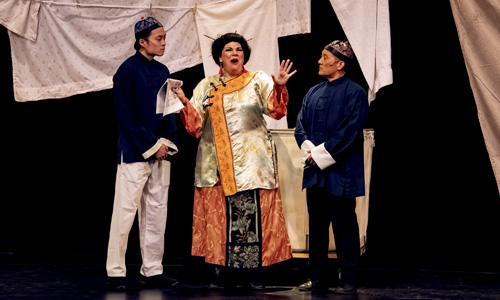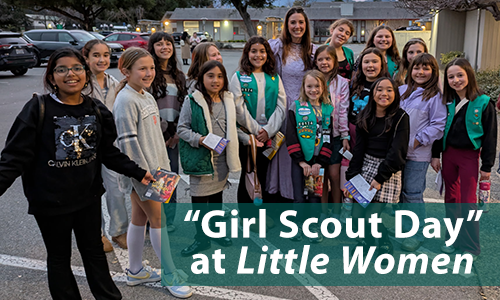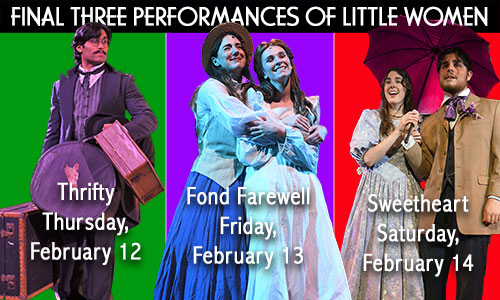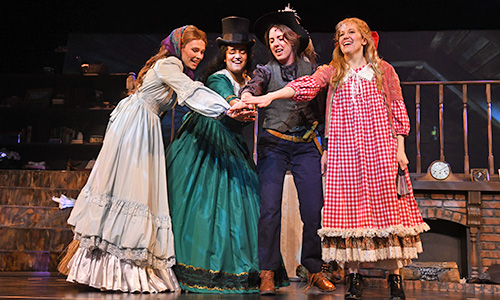In the irreverent musical Avenue Q, one of the songs purports that “Everybody’s a little bit racist,” as it skewers contemporary attitudes regarding race, religion, political correctness, and humor based on exaggerated stereotypes. The point hits home, because as much as we hate to admit it, we all have biases.
Those of us in the theatre community are forced to confront these issues whenever we dip into the well of past Broadway productions to pick a slate of shows to revive. The stereotypical characters and conflicts of Broadway’s golden age may not resonate with today’s “woke” audiences, and yet it’s the well-known titles that sell tickets.
South Bay Musical Theatre dealt with variations of this dilemma for all three of its mainstage shows this year. Mame asks the audience to be shocked by an unwed mother. In Big River, Mark Twain’s source material confronts us with the “n-word” (which we opted to delete.) And in Thoroughly Modern Millie, we have a white villainess adopting a stereotypical Asian accent and deliberately outrageous behavior.
Thoroughly Modern Millie was in the news recently, after protesters in New York expressed their displeasure over the portrayal of Asian American characters in a high school production of that show, and the school district, in a knee-jerk reaction, declared that the title would be banned from any future production.
On the other hand, Millie is a relatively recent musical, and it swept the Tony Awards in 2002. Francis Jue, who created the role of Bun Foo in the original Broadway production, once said that the roles of Mrs. Meers, Ching Ho, and Bun Foo were revolutionary. He thought it was important “to actually have real Chinese guys singing and speaking in their own language and meaning it, and to link their immigrant story to the same story as [the leading characters] … who come to New York to reinvent themselves.”
Executive Director Sara Dean agrees. “The behaviors of villains in this production obviously do not reflect SBMT values or the Millie company members’ beliefs,” she states emphatically. “And our non-traditional casting of certain roles is a reflection of our commitment to quality and inclusiveness, given the reality of the demographics of the local acting community. We take race and gender into account during auditions, but we aren’t afraid to challenge tradition if it gives us a better result—as when we cast a woman as Benjamin Franklin in our production of 1776.”
So how do we choose which shows to do, and which actors to cast? “SBMT is committed to inclusive casting—both on gender and race,” Sara explains. “For each production we select, we consider the shows requested by our patrons as well as the show’s cultural and artistic merit—recognizing that even shows created in the 2000s suffer from some form of bias that might be upsetting to some audiences. We then do our best to cast wonderful actors for our shows for the best quality production we can achieve. We are open to all possibilities for casting, but the bottom line is that we are sometimes limited by local performers’ availability or interest in a show, often necessitating some creative license in our approach.”
What about you? Do you agree there’s a place for over-the-top comedic portrayals? Stand-up comedians these days often mine laughter from the discomfort of their audiences by filling their sets with four-letter words, graphic content, and equal-opportunity insults. Musical theatre is far from that edge of the comedic spectrum, but sometimes it can get provocative, too. (Think “Springtime for Hitler” in The Producers.) Please share your opinions in the comments below. How can we as a modern theatre company present some of the most influential works of the Broadway canon—and be responsive to our audiences—without offending?





Leave A Comment